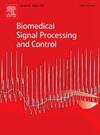Liver disease classification using histogram-based gradient boosting classification tree with feature selection algorithm
IF 4.9
2区 医学
Q1 ENGINEERING, BIOMEDICAL
引用次数: 0
Abstract
Healthcare is the key for everyone to run daily life, and health diagnosing techniques should be accessible easily. Indeed, the early identification of liver disease will be supportive for physicians to make decisions. Utilizing feature selection and classification approaches, this work aims to predict liver disorders through machine learning. The Histogram-based Gradient Boosting Classification Tree with a recursive feature selection algorithm (HGBoost) is proposed in this paper. The recursive feature selection approach and the Gradient Boosting are used to forecast liver disease. Using data from Indian liver patient records, the proposed HGBoost method has been assessed. Assessing the accuracy, confusion matrix, and area under curve involves implementing and comparing a variety of classification techniques, including MLP, Gboost, Adaboost, and proposed HGBoost algorithms. With the help of the recursive feature selection technique, the proposed HGBoost has surpassed other current algorithms. In comparison to the MLP, RF, Gboost, Adaboost, and proposed HGBoost algorithms, the enhanced accuracy is between 4 and 9% and between 1 and 7 % of the MSE error.
利用基于直方图的梯度提升分类树和特征选择算法进行肝病分类
医疗保健是每个人日常生活的关键,而健康诊断技术应易于获取。事实上,肝脏疾病的早期识别将有助于医生做出决策。本研究利用特征选择和分类方法,旨在通过机器学习预测肝脏疾病。本文提出了基于直方图梯度提升分类树的递归特征选择算法(HGBoost)。递归特征选择方法和梯度提升用于预测肝病。利用印度肝病患者的记录数据,对所提出的 HGBoost 方法进行了评估。评估准确率、混淆矩阵和曲线下面积涉及实施和比较各种分类技术,包括 MLP、Gboost、Adaboost 和拟议的 HGBoost 算法。在递归特征选择技术的帮助下,拟议的 HGBoost 算法超越了其他现有算法。与 MLP、RF、Gboost、Adaboost 和提议的 HGBoost 算法相比,准确率提高了 4% 到 9%,MSE 误差提高了 1% 到 7%。
本文章由计算机程序翻译,如有差异,请以英文原文为准。
求助全文
约1分钟内获得全文
求助全文
来源期刊

Biomedical Signal Processing and Control
工程技术-工程:生物医学
CiteScore
9.80
自引率
13.70%
发文量
822
审稿时长
4 months
期刊介绍:
Biomedical Signal Processing and Control aims to provide a cross-disciplinary international forum for the interchange of information on research in the measurement and analysis of signals and images in clinical medicine and the biological sciences. Emphasis is placed on contributions dealing with the practical, applications-led research on the use of methods and devices in clinical diagnosis, patient monitoring and management.
Biomedical Signal Processing and Control reflects the main areas in which these methods are being used and developed at the interface of both engineering and clinical science. The scope of the journal is defined to include relevant review papers, technical notes, short communications and letters. Tutorial papers and special issues will also be published.
 求助内容:
求助内容: 应助结果提醒方式:
应助结果提醒方式:


